It seems we can’t find what you’re looking for. Perhaps searching can help.
Sign Up for newsletter!
Subscribe to get the latest eBook!
Hotline






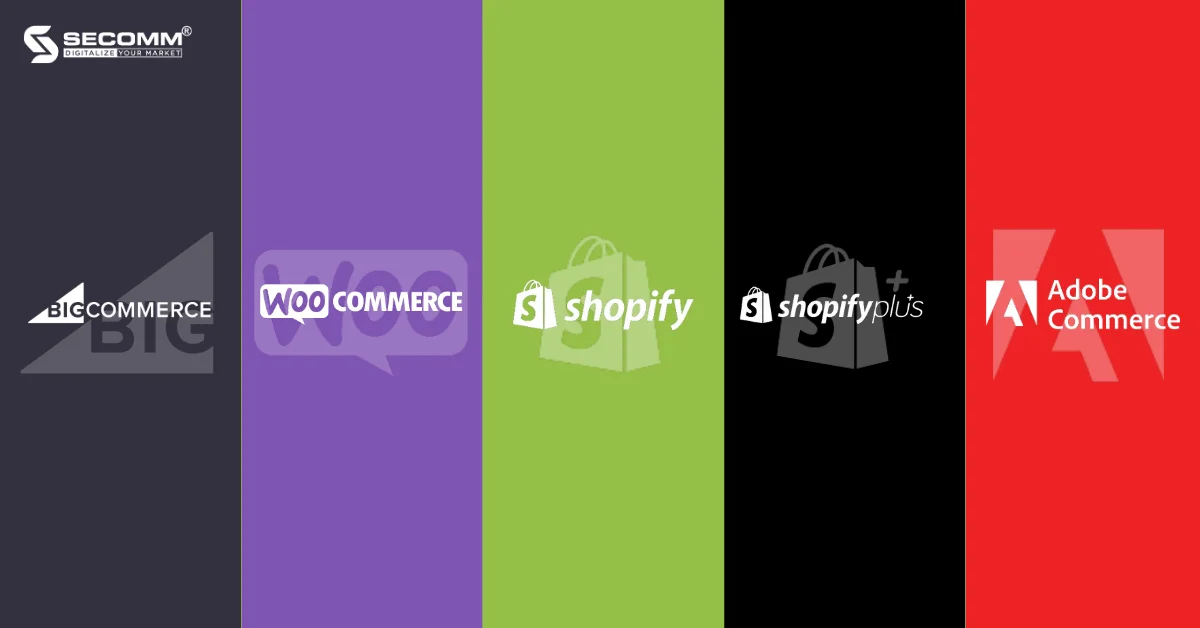
The global B2C eCommerce market is valued at 4.44 trillion USD in 2023 and is projected to reach 7.45 trillion USD by 2030, with a compound annual growth rate (CAGR) of 7.6% during the forecast period from 2021 to 2030.
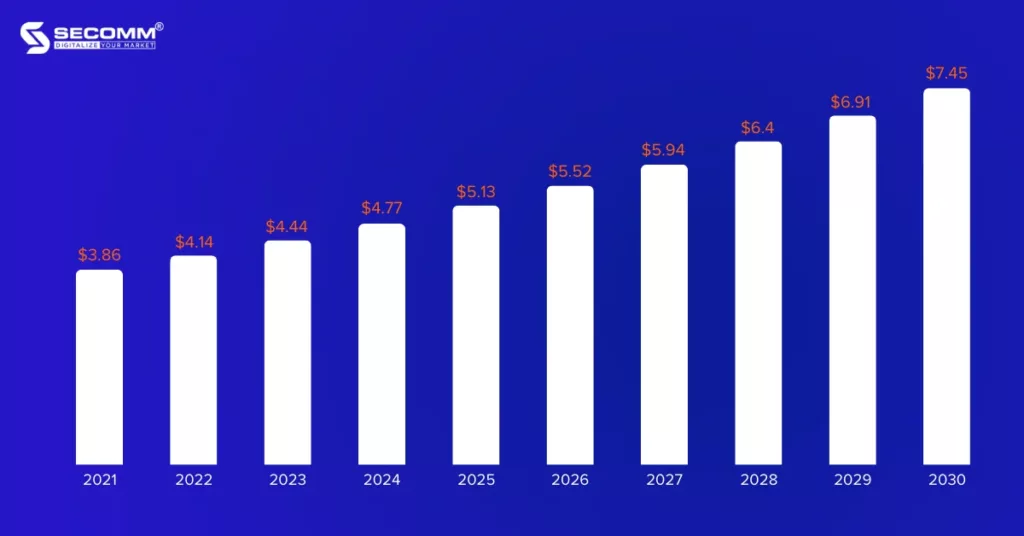
This demonstrates that eCommerce is increasingly thriving, becoming a crucial sales channel for B2C businesses. To build and develop a successful online store, businesses need to choose an eCommerce platform that aligns with their needs and business objectives.
B2C eCommerce platforms typically provide a seamless shopping journey, and user-friendly interfaces, allowing customers to easily navigate, search for items, and complete transactions quickly.
This is achieved through professional UI/UX design and advanced functionality systems for eCommerce websites.
An exemplary example is CHARLES & KEITH, a fashion eCommerce website, designed with sophistication and appeal, along with easy navigation and search capabilities.

According to Statista’s statistics, the expected number of smartphone users worldwide is projected to reach 4.96 billion by 2025. This indicates that mobile commerce is virtually indispensable in B2C eCommerce strategies.
Consumers increasingly desire the ability to shop anytime, anywhere, even while on the move, and optimizing eCommerce websites for mobile devices will meet this consumer demand.
Choosing a suitable eCommerce platform will support a range of mobile-optimized themes catering to various industries and preferences, enabling businesses to establish an effective online store and navigate for mobile users.
Leading B2C eCommerce platforms will have a streamlined order processing system, ensuring a hassle-free payment experience for both business owners and buyers.
OneStep Checkout is a typical example that allows customers to complete their order payment on a single page. This simplifies and facilitates the payment process for customers, potentially increasing conversion rates.
Businesses can refer to PNJ’s Checkout page for comprehensive information on streamlining the shipping process all within one webpage.
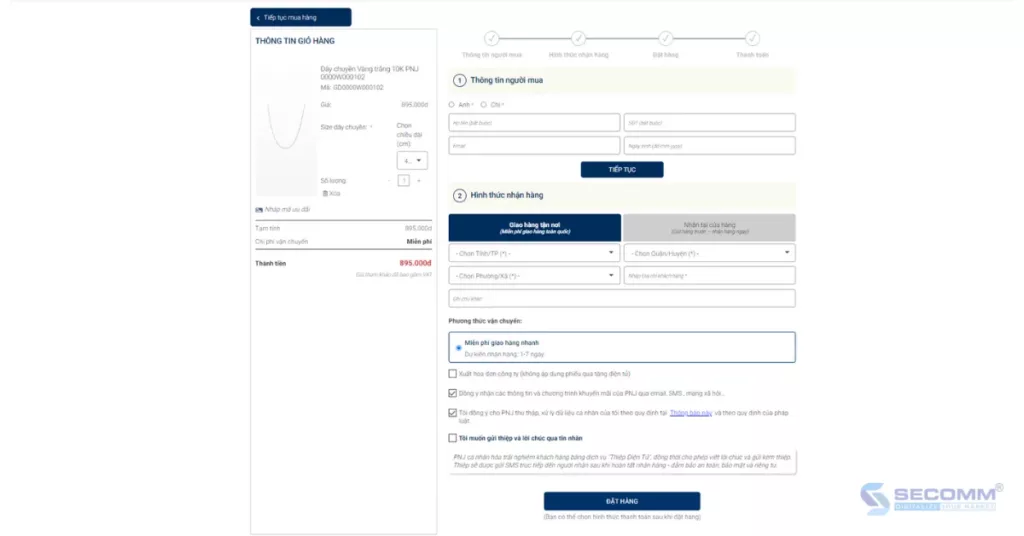
Personalization tools allow businesses to tailor content and promotions based on consumer behaviour and preferences, supported by AI.
By integrating personalized features at relevant touchpoints within an eCommerce website, businesses can enhance conversion rates and ROI (Return on Investment).
Major eCommerce brands like Amazon, Alibaba, Best Buy, etc., consistently incorporate product recommendation features to encourage shopping behaviour from customers.
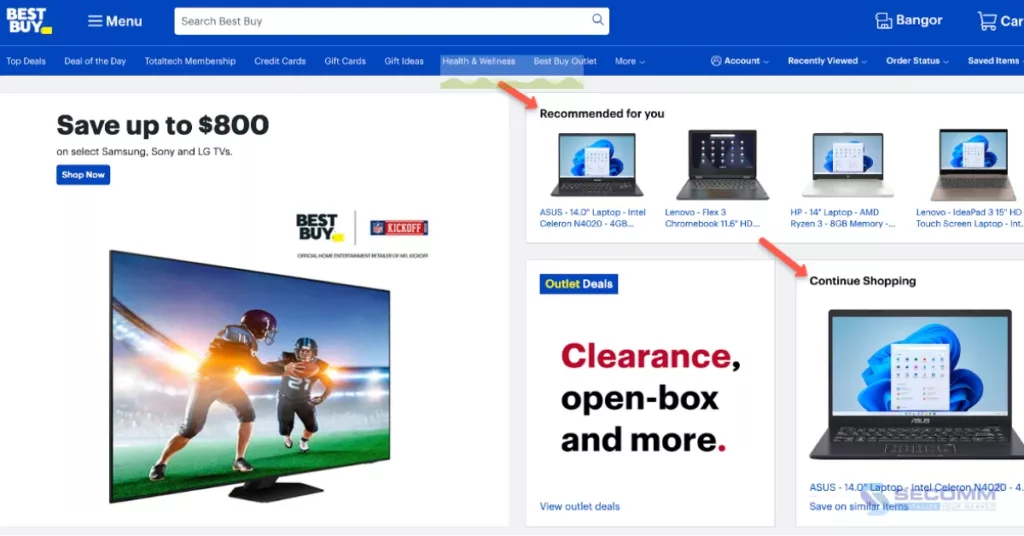
Another crucial aspect of B2C eCommerce is the ability for pages to load quickly and efficiently, ensuring the website maintains stable performance and effectively delivers content on all devices.
To ensure website performance, businesses should opt for major eCommerce platforms such as Adobe Commerce (Magento), Shopify Plus, BigCommerce Enterprise, etc. These platforms offer advanced performance features and robust caching mechanisms, tailored for various industries and preferences, enabling businesses to establish online stores with responsive feedback and faster page loading.
Below are the top 5 eCommerce platforms that SECOMM has evaluated as suitable for businesses following the B2C model.
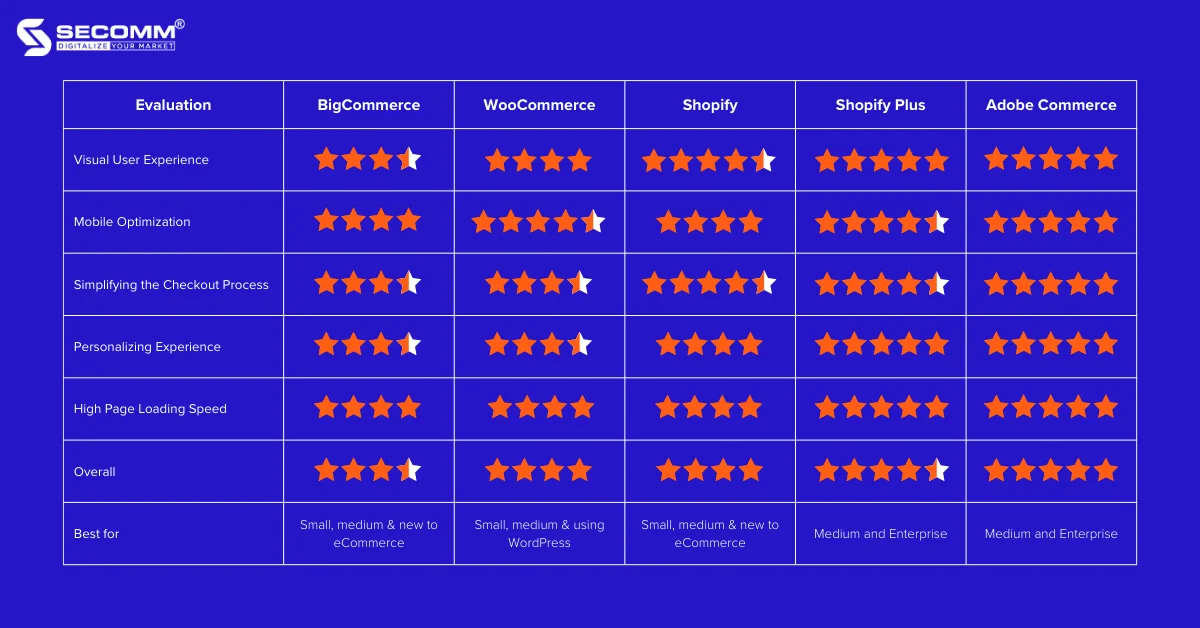
BigCommerce is an eCommerce platform designed for ease of use to assist businesses in initiating their journey to build an eCommerce website.
After years of development, BigCommerce has become one of the feature-rich platforms available for creating websites, optimizing search tools, marketing, etc., with reasonable deployment costs.
Compared to other popular platforms mentioned in this article, the performance, features, and application ecosystem of BigCommerce are not overly outstanding. However, BigCommerce remains a good choice for small, and medium-sized businesses, or those entering the market.
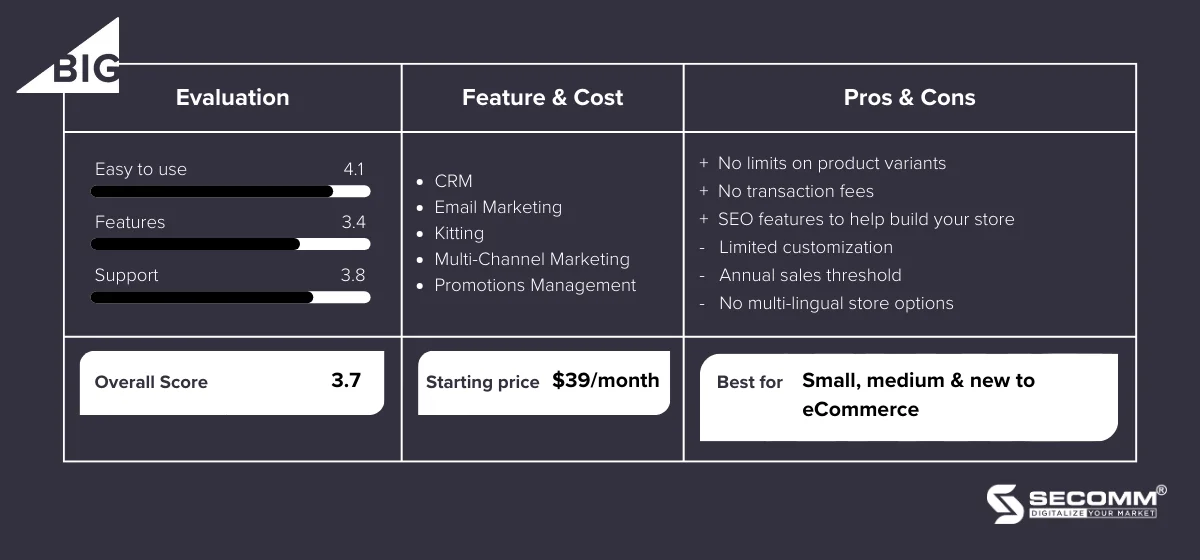
Read more: Shopify vs BigCommerce: Which platform is right for you?
WooCommerce is a free WordPress plugin that enables brands to establish an eCommerce website by adding eCommerce functionality to an existing WordPress site. The WooCommerce plugin helps transform a regular WordPress website into an eCommerce site with all the necessary features, easily customizable with just a few clicks.
Businesses can leverage the extensive ecosystem of WooCommerce to upgrade both functionality and design for the most suitable interface. Therefore, WooCommerce is also a good choice for small or medium-sized B2C businesses, especially those that have previously used WordPress.
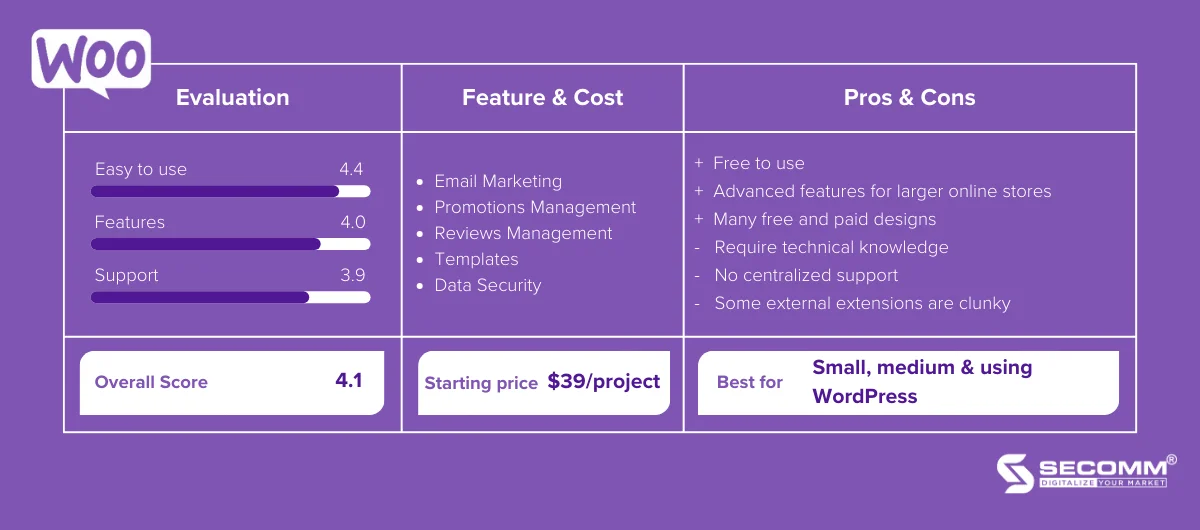
Shopify is one of the popular eCommerce platforms that businesses can use to build, develop, and manage online stores.
Shopify operates on the SaaS (Software as a Service) model, so businesses pay a monthly fee to use the platform and must adhere to its regulations.
However, Shopify manages hosting and takes responsibility for technical issues to ensure the safety and efficient operation of the business’s eCommerce website.
The platform provides the necessary features and benefits for businesses to successfully build and develop an online store. In terms of suitability for B2C businesses, Shopify is most suitable for small to medium-sized enterprises or those entering the eCommerce market.
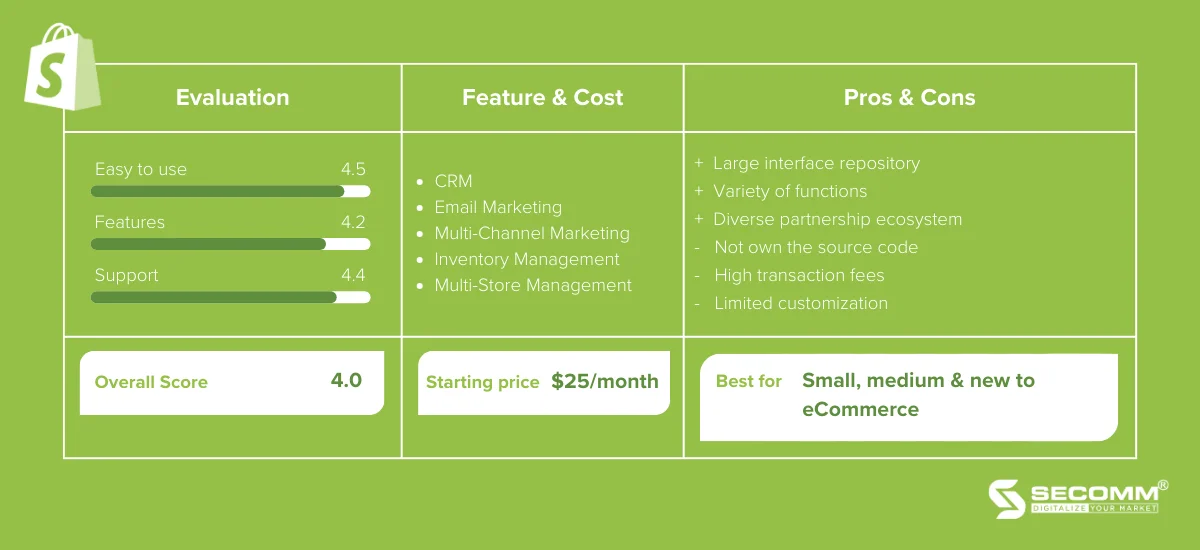
Shopify Plus is the enterprise-level version of the eCommerce platform provided by Shopify, specifically designed for large brands with an annual transaction value of over 1 million USD and high growth rates.
Unlike Shopify, Shopify Plus follows the PaaS (Platform as a Service) model, allowing businesses to utilize the development environment of Shopify Plus to develop databases, web servers, functionality, etc., for their eCommerce system.
The initial cost for using Shopify Plus is around $2,000 per month and increases gradually based on revenue. Therefore, using this platform to meet the needs of B2C eCommerce or any industry-specific requirements is relatively straightforward.
However, Shopify Plus is more suitable for medium to large-scale businesses as it requires technical knowledge and involves relatively high usage costs.
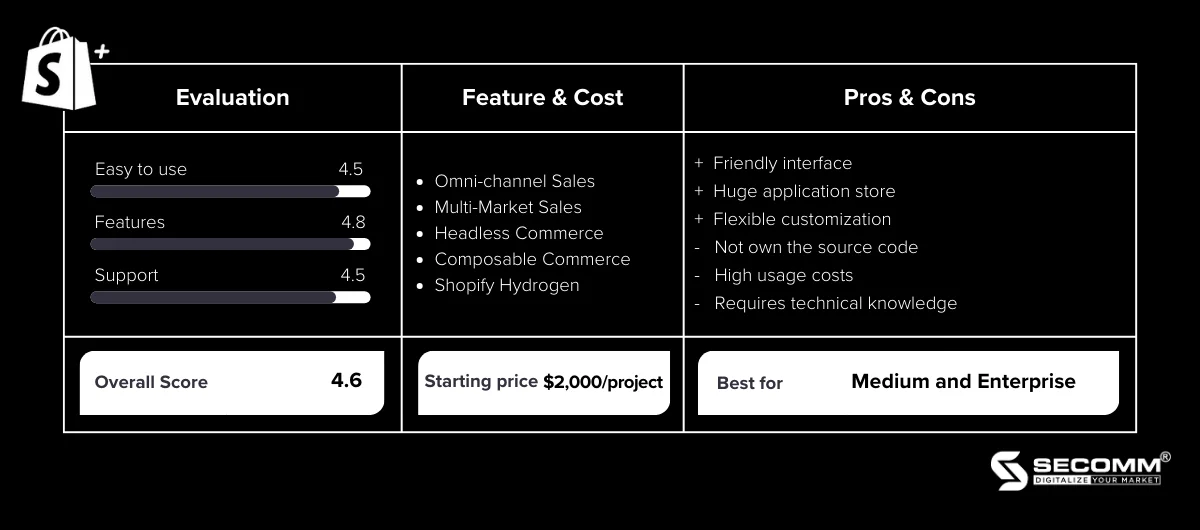
Read more:
Adobe Commerce is an open-source eCommerce platform specially designed to serve medium to large-scale businesses, offering high customization and scalability. Currently, Adobe Commerce has two main versions: Adobe Commerce Cloud and Magento Open Source.
As one of the leading platforms in eCommerce, Adobe Commerce is consistently highly regarded across all scales and industries, including B2C eCommerce businesses.
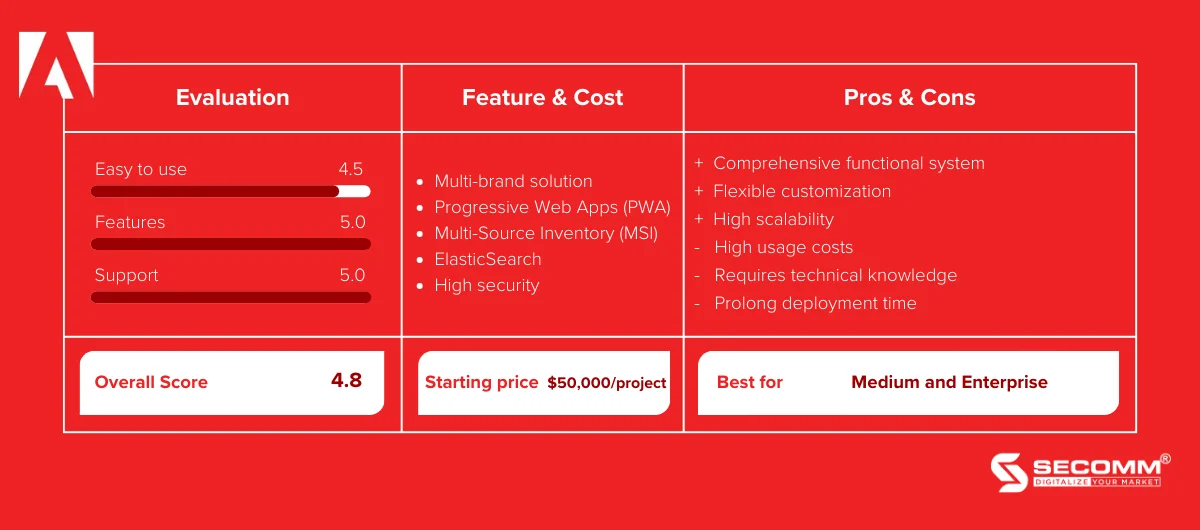
Read more:
Above are the 5 popular platforms that B2C businesses prefer to use for building eCommerce websites, catering to online business goals for their brands.
However, choosing the most suitable platform for each business will depend on various factors such as business strategy, budget, deployment time, and the long-term direction set by business managers.
With deep expertise and the development of complex eCommerce systems for clients such as Changi Airport Group (Singapore), Trentham Estate (Australia), and The Warehouse (Vietnam), SECOMM understands the challenges in choosing a platform and deploying eCommerce that businesses are facing.
Contact SECOMM now or call directly at the hotline number (028 7108 9908) for free advice on the eCommerce website building roadmap!
 2
2
 9,570
9,570
 0
0
 1
1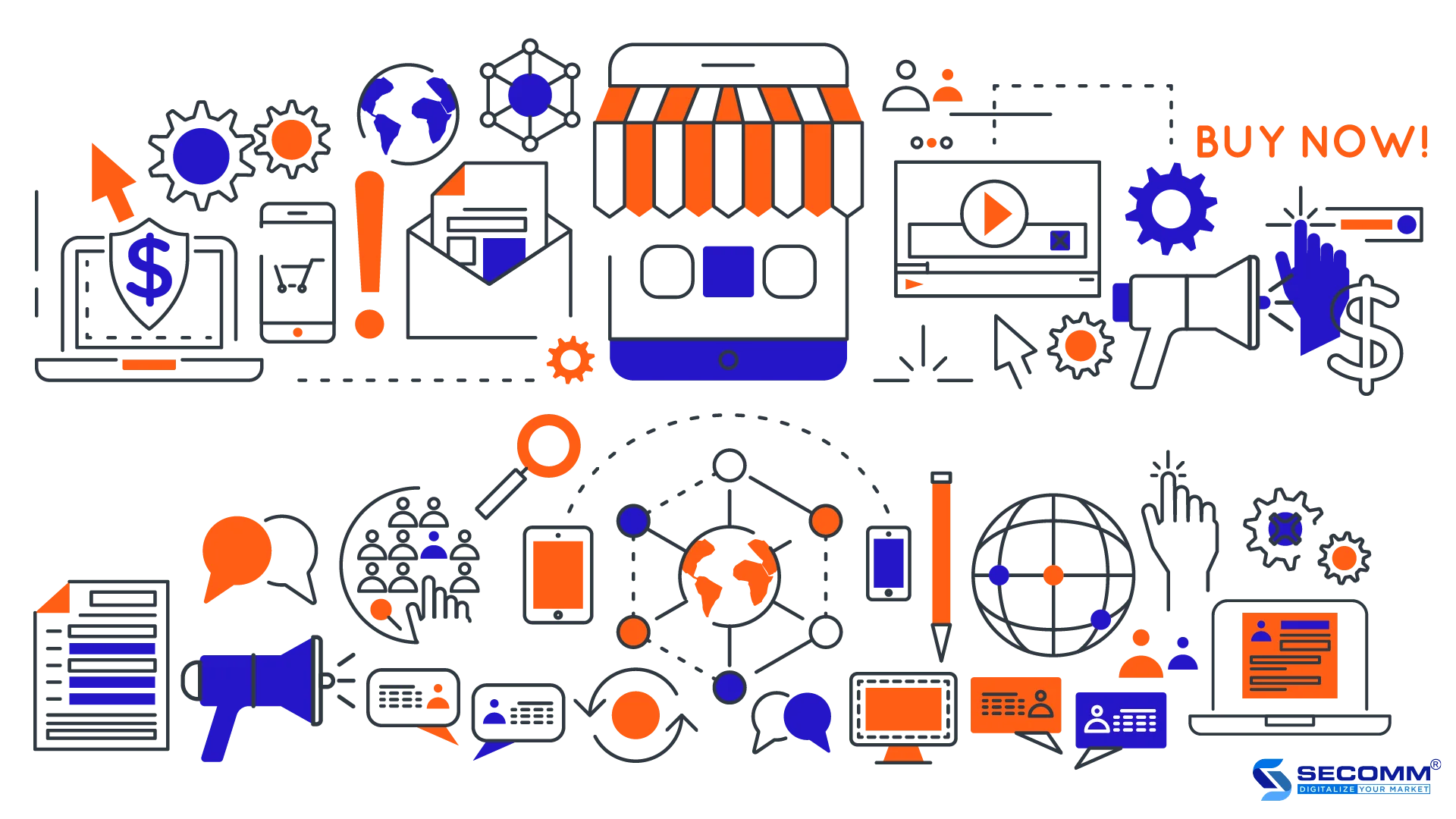
Business-to-Consumer (B2C) ecommerce is online transactions between businesses and consumers.
B2C ecommerce is considered a potential market for Vietnamese businesses at present. According to the 2020 Ecommerce White Paper, B2C ecommerce in Vietnam reached 11.8 billion USD, ranking 3rd in the ASEAN region, with a 41% increase in new participants, the highest in the region.
This type of ecommerce is currently popular with a global scale of 4,280 billion USD in 2020. Examples include the B2C websites of Mobile World (Top 5 with 16,606,700 visits), Bach Hoa Xanh (Top 9 with 5,440,000 visits), and FPT Shop (Top 10 with 4,213,300 visits).
Why do businesses need to implement B2C ecommerce?
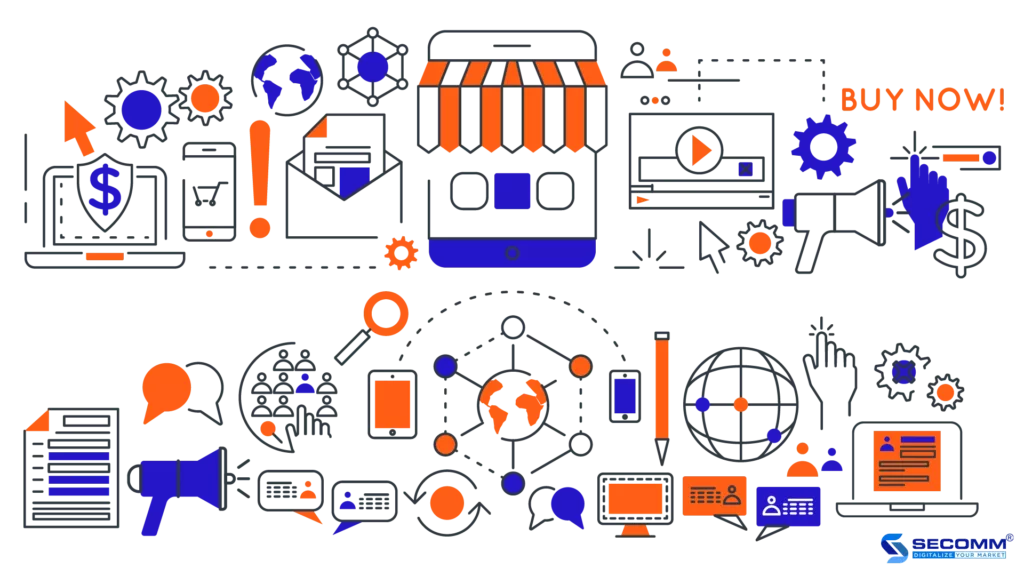
Changes in consumer shopping habits have influenced the B2C ecommerce market. Customers tend to spend on brands in the online market rather than shopping and experiencing directly at physical stores. Therefore, implementing B2C ecommerce helps not only to position the brand in the market but also to maximize revenue and profit for businesses.
Effective Ecommerce Marketing campaigns help businesses reach more potential customers. On popular social media platforms (Facebook, Instagram, TikTok, Zalo), businesses can reach customers through advertising tools and directly interact with customers, supporting the brand’s presence in the subconscious of customers. Additionally, customer search habits for product information help businesses that have implemented SEO and SEM attract a large amount of traffic to their ecommerce websites, increasing the conversion rate of orders.
Establishing an additional online sales channel helps businesses maximize revenue. Unlike physical stores, ecommerce websites operate 24/7, supporting customers in shopping at any time. They also provide features to facilitate the online shopping process for consumers, such as quick search, product comparison, fast cart, recommended products, and quick payment. This speeds up the online shopping process, improves order conversion rate, and boosts business sales.
Moreover, in 2020, businesses that implemented B2C ecommerce demonstrated its importance when social distancing due to Covid-19 occurred. B2C businesses with ecommerce maintained their business activities compared to traditional businesses.
With the nature of unlimited time and location for shopping, online stores help businesses solve cost-related problems more effectively.
In the current era of “Big Data,” data plays a crucial role… When deploying their ecommerce systems, businesses can easily:
Examine scenarios that data has shown regarding developments in the B2C ecommerce market, thereby devising more suitable business strategies.
Upgrade B2C ecommerce systems to adapt to market changes. Introduce innovations in new products and accompanying services (payment, shipping…).
When a business successfully transitions to the B2C ecommerce business model, issues related to sales, marketing, and operations are improved.
Automate the sales process:
Order processing speed is faster:
Improve Marketing campaigns:
Improve Customer Support:
Personalize the user experience at each stage through:
Build better return/exchange policies:
After understanding the importance of B2C ecommerce for business development, the next important thing businesses need to do is learn about effective and flexible methods to deploy this system.
With more than 9 YEARS OF EXPERIENCE providing comprehensive ecommerce solutions for many businesses in various countries, SECOMM provides solutions such as:
Contact SECOMM now for FREE CONSULTATION SUPPORT!
 2
2
 7,318
7,318
 0
0
 1
1Subscribe to get the latest eBook!
Hotline